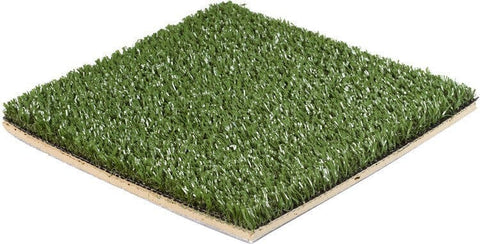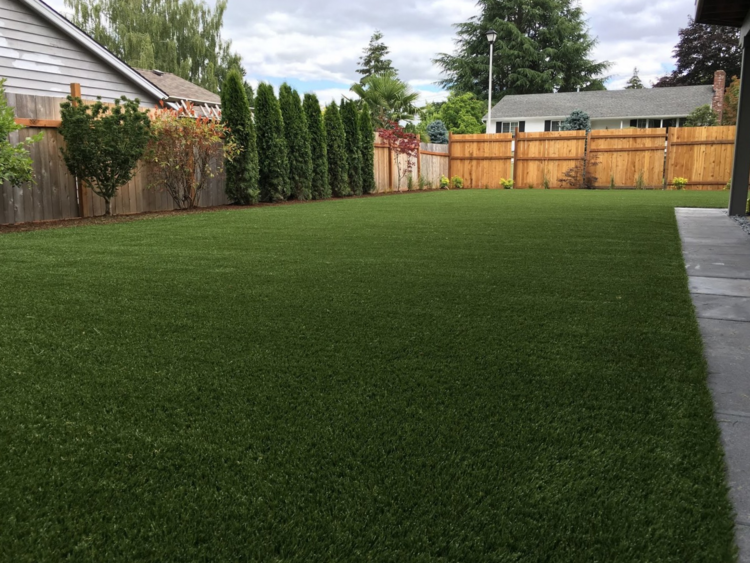Delve Into the Environmental Perks of Opting for Artificial Turf Solutions
The adoption of man-made lawn remedies provides an engaging opportunity to address pushing ecological difficulties. By dramatically decreasing water use and decreasing the application of harmful chemicals, these alternatives not just promote sustainable landscape design yet likewise secure regional ecosystems.
Water Conservation Benefits
Among the most substantial advantages of artificial lawn is its capability to conserve water. Traditional yard yards require significant irrigation, specifically in locations susceptible to dry spell or water restrictions. In comparison, synthetic grass does not need watering, significantly decreasing the total need for water sources. This feature is specifically beneficial in deserts where water scarcity is a pushing concern.
By getting rid of the requirement for normal watering, synthetic grass adds to lasting landscape techniques and assists reduce the environmental effect of too much water usage. Additionally, the conservation of water includes the decrease of drainage, which can result in dirt erosion and waterway contamination.
Additionally, the installation of synthetic grass permits property owners and municipalities to allot water resources a lot more successfully, concentrating on important usages such as drinking water and farming. The change towards synthetic turf not just promotes liable water usage but also aligns with wider environmental objectives aimed at protecting natural deposits.
As neighborhoods significantly prioritize sustainability, the water preservation advantages of synthetic grass present an engaging situation for its adoption in business and domestic landscape design jobs.
Decreased Chemical Use
The transition to artificial grass considerably reduces the dependence on chemical treatments frequently used in all-natural yard upkeep. Traditional grass management normally involves the application of herbicides, pesticides, and plant foods to promote growth and control bugs. These chemicals can position risks to human health and wellness, local wild animals, and the setting, contributing to soil and water contamination.
In contrast, synthetic grass removes the requirement for these harmful substances. As soon as set up, it calls for very little maintenance, mostly consisting of regular cleaning and occasional infill replenishment. This reduction in chemical use not only profits the immediate atmosphere yet additionally adds to more comprehensive environmental security. By reducing the launch of artificial compounds right into the ecological community, synthetic turf promotes much healthier dirt and water systems.
Additionally, the lack of chemical overflow linked with synthetic grass setups assists protect neighborhood rivers from pollution, supporting marine life and keeping biodiversity. Arizona turf. As areas significantly prioritize sustainable techniques, choosing synthetic grass presents a viable solution that straightens with environmental preservation goals. Via this shift, home owners can enjoy rich environment-friendly rooms without compromising ecological wellness, leading the way for a more sustainable future
Reduced Carbon Impact

In addition, helpful hints the installation of synthetic grass can result in significant water preservation. All-natural yards need significant amounts of water for watering, which not just includes to the carbon impact related to water removal and therapy but also pressures local water resources. In comparison, artificial turf requires marginal upkeep, calling for no watering, consequently substantially lowering water usage and its connected power prices.
Furthermore, the long life of synthetic grass adds to its lower carbon influence. With a lifespan of approximately 15 years or even more, the requirement for constant substitutes is diminished, causing much less waste and lower power usage in manufacturing and taking care of conventional lawn choices. In general, man-made grass provides a lasting alternative for environmentally aware landscape design.
Habitat Preservation
Environment preservation is an essential consideration in the dispute over landscaping options, specifically when contrasting fabricated lawn to all-natural lawn. All-natural yard yards typically require substantial upkeep, including the use of plant foods, herbicides, and pesticides, which can adversely influence neighborhood environments. These chemicals can leach into the dirt and rivers, damaging native vegetation and fauna and disrupting local environments.
In contrast, synthetic grass presents a possibility to lower the environmental Home Page impact of landscape design. By choosing synthetic lawn, home owners can lessen the disruption of all-natural habitats connected with standard lawn care methods. Synthetic grass eliminates the requirement for unsafe chemicals, therefore safeguarding neighboring wildlife and preserving the integrity of surrounding communities. The setup of fabricated lawn can lead to the conversion of former grass locations into more biodiverse landscapes, such as pollinator yards or native plant areas, which can support regional wild animals.
Inevitably, the change to synthetic grass not just saves water and reduces upkeep initiatives yet also fosters a much more unified connection between human tasks and the all-natural environment, advertising environment preservation in the process.
Long-Term Sustainability
Long-lasting sustainability is an essential element in examining the advantages of artificial lawn over typical lawn lawns. One of the most substantial advantages of synthetic grass is its durability; it can last approximately 15-20 years with very little maintenance, whereas all-natural lawn needs frequent reseeding and substitute. This longevity decreases the need for consistent resources, such as water, plant foods, next page and pesticides, which are vital for maintaining a healthy and balanced turf lawn.
In addition, artificial lawn adds to a decrease in carbon discharges related to lawn care tools. Conventional grass usually call for gas-powered lawn mowers, trimmers, and blowers, every one of which add to air contamination. Arizona turf. In comparison, artificial grass removes the requirement for such equipment, advertising a cleaner environment
Additionally, the production of artificial grass increasingly uses recycled products, enhancing its sustainability profile. As suppliers embrace green practices, the environmental footprint of fabricated grass remains to diminish.

Conclusion
The fostering of synthetic grass options offers considerable ecological benefits, consisting of significant water preservation, decreased dependence on hazardous chemicals, and a lower carbon footprint. Fabricated turf aids in preserving all-natural environments by lessening land disruption and promoting long-lasting sustainability through the use of long lasting materials. Collectively, these elements underscore the possibility of synthetic grass to add favorably to environmental health and offer a practical choice to typical landscaping methods in a significantly resource-conscious world.
In contrast, fabricated lawn does not require watering, dramatically minimizing the overall need for water resources. By minimizing the launch of synthetic substances into the community, synthetic lawn promotes healthier dirt and water systems.
In addition, the setup of artificial lawn can result in substantial water conservation. In comparison, synthetic turf needs minimal upkeep, requiring no watering, thereby considerably minimizing water usage and its associated energy prices.
